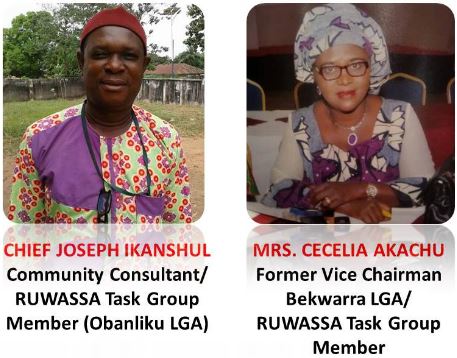By Violet Isek, Margaret John Efa Sunday
The declaration of Bekwarra and Obanliku Local Government Areas of Cross River State as Open Defecation Free (ODF) has been described as a milestone and has been of great benefit to both communities.
The members of Obanliku and Bekwarra Local Task Group of Rural Water Supply and Sanitation Agency (RUWASSA), Chief Joseph Ikongshul and Mrs. Cecilia Akachu, said this while speaking on phone, as guests on “The Dialogue With Agba Jalingo” on Sunday on Hit 95.9 FM, Calabar.
According to Chief Ikongshul who is a member of the Obanliku Local Task Group of RUWASSA, the number of health cases encountered in the community have reduced drastically since both communities were declared Open Defecation Free (ODF).
“Before the coming of this program, there were lots of diarrhea cases; dysentery, vomiting, to mention but a few but as soon as they (United Purpose, WASHCOM) set in, the complains reduced.
“We were able to move from one Health Center to the other to take statistics for the number of ailments, casualties and patients, and after they had delivered the program to us.
“We have gone back again to take statistics. We have them on our table to prove that when they had not come, it was very dangerous to the community, but now that the program has come, the complaints of diarrhea have drastically reduced.” He said.
On her part, Mrs. Cecilia Akachu, a former Vice Chairman of Bekwarra affirmed that the ODF has not only benefited the community health-wise, but has also improved in sanitation, basic education and economy in general.
“On the issue of health, before now, most of their children were suffering from diseases like diarrhea, which in turn affected their pockets. It again affected the school arrangement; when a child is suffering from diarrhea, a child won’t go to school.
Talking of sanitation, before now, you can’t go into any building without stepping on excreta. But now, you can walk behind any building with your eyes closed.”
Economically, sites that used to be defecation sites, women now plant vegetables and other leguminous plants like groundnut, which they now sell to make money to boost the economy.”
